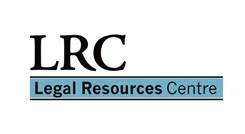An agreement signed by the Presidency that effectively removed recourse for South Africans to a regional Tribunal will be tackled in the Pretoria High Court this week. In the matter, the Centre for Applied Legal Studies, represented by the Legal Resources Centre, will argue that SA’s Presidency cannot bind South Africa to international treaties without first consulting the public.
On 5 February, the High Court will hear argument in a matter brought by the Law Society of South Africa against the Presidency and the Ministers of Justice and Constitutional Development, and International Relations. The Centre, represented by the Legal Resources Centre, will be assisting as a ‘friend of the court’ in the matter concerning the suspension of the SADC Tribunal.
The Tribunal was established in 2005 to resolve disputes involving southern African states and their citizens. In 2010, after a number of rulings against the Zimbabwean government, the Tribunal was effectively suspended. By 2014, the SADC Summit resolved that a new Tribunal should be formed and this time confined to reviewing disputes between states only, and not between states and their citizens. The South African Presidency was one of the signatories to this resolution.
“By signing this Protocol, the Presidency has effectively removed the rights of South Africans to access the Tribunal if they want to appeal cases that have been decided in our highest courts,” said Palesa Madi, attorney at the Centre for Applied Legal Studies.
“This even prevents people from other southern African countries from being able to access the court process.”
The Centre and the LRC said they were deeply concerned that the Presidency had entered into what was in effect an international treaty without first consulting the people of South Africa. While the Protocol had not yet been ratified, the signature lent support to a process that would limit access to courts for many people in the region.
“It’s inappropriate for the Presidency to unilaterally bind the country on an international stage without first receiving a mandate from the people,” said Lisa Chamberlain, Acting Director of the Centre. “We live in a participatory democracy and if public participation in decision making applies at the national level, it has to apply at the international level as well.”
The matter will be heard in the Pretoria High Court from 5-7 February 2018.



